Introduction
The Netherlands is a perfect country to live in as an international student. The Dutch population supports students and invites internationals to study and start careers in the country. In addition, the Dutch are some of the best non-native English speakers in the world. Not to mention you can get anywhere in the country with a bike!
This article will give you valuable recommendations you can consider when studying and living in the Netherlands on a budget. I will give you my personal experiences regarding topics like grocery shopping, transportation, and most importantly, budgeting.
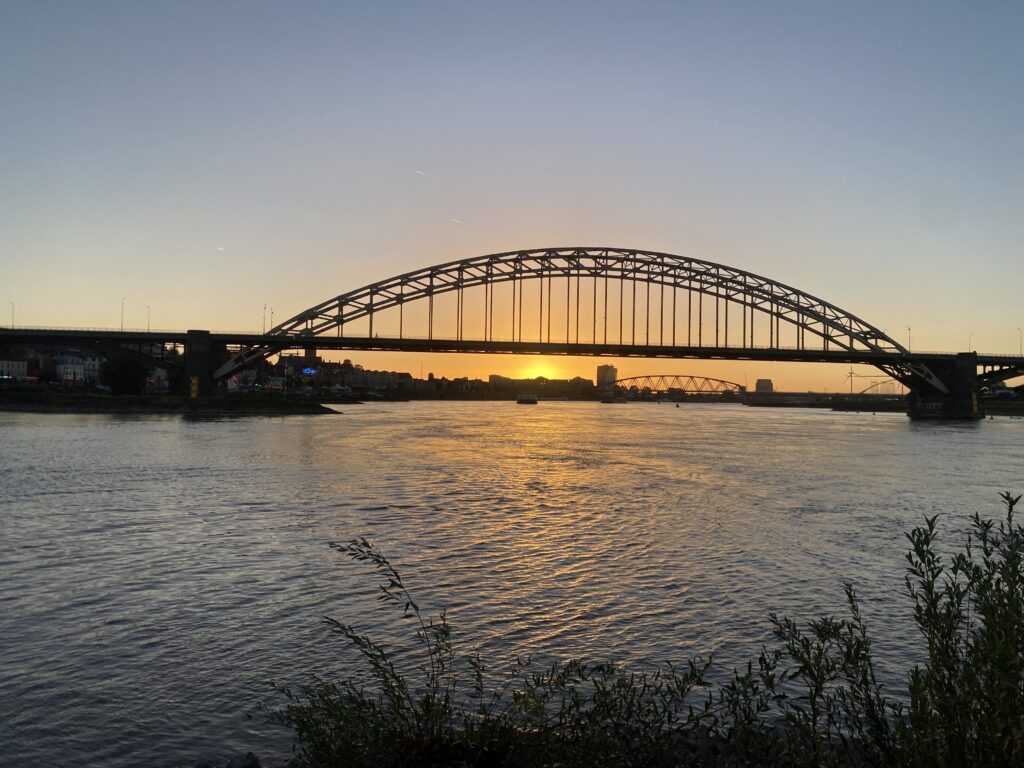
Background
I studied for 6 months in Nijmegen from August to January. Maybe I am biased, but the Netherlands is the best place in the world to study short term. Many of the Universities in the country have a large international population and many of the courses are taught in English. I learned a lot through this experience, as I had to rethink how I approached everyday activities. The following sections will cover all the main major considerations when moving to the Netherlands.
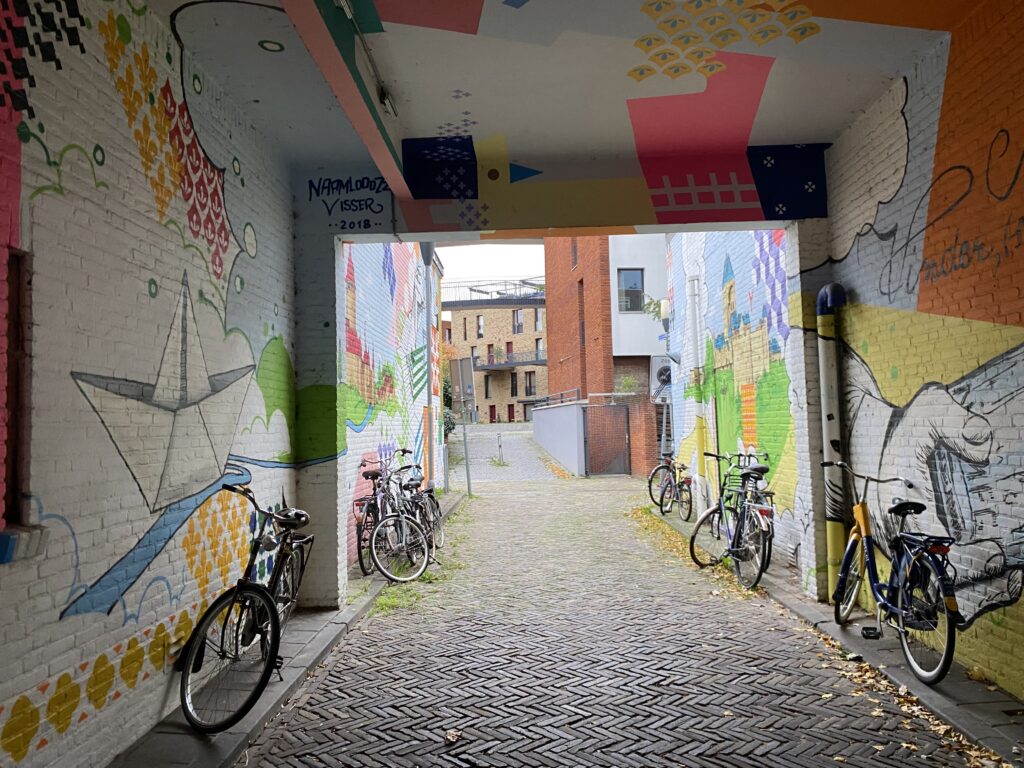
Grocery shopping as a student
Grocery shopping in the Netherlands can be tricky depending on where you are from. There are three main stores in most Dutch cities: Albert Hein, COOP, and Aldi. Shopping for food in the Netherlands can get very pricy. As a student will limited funds, I recommend doing everything you can to find yourself an Aldi. Aldi is a discount grocery store with everything you need for a meal. This is also the only store that universally accepts all forms of card payment (Albert Hein and COOP do not).
It is also smart to get yourself a reliable tote bag, small backpack, or bike basket to take your groceries home. I found it very efficient to bring a tote bag, as it has just enough room (roughly) for about 2-3 days’ worth of groceries. Also if you are shopping at Aldi, much of the food is at discount so generally it should be consumed quickly after purchase…
Overall, DO NOT go to COOP or Albert Hein if you are trying to budget for a long-term stay in the Netherlands.
Check out a little trick for getting your groceries home safe in the image below…
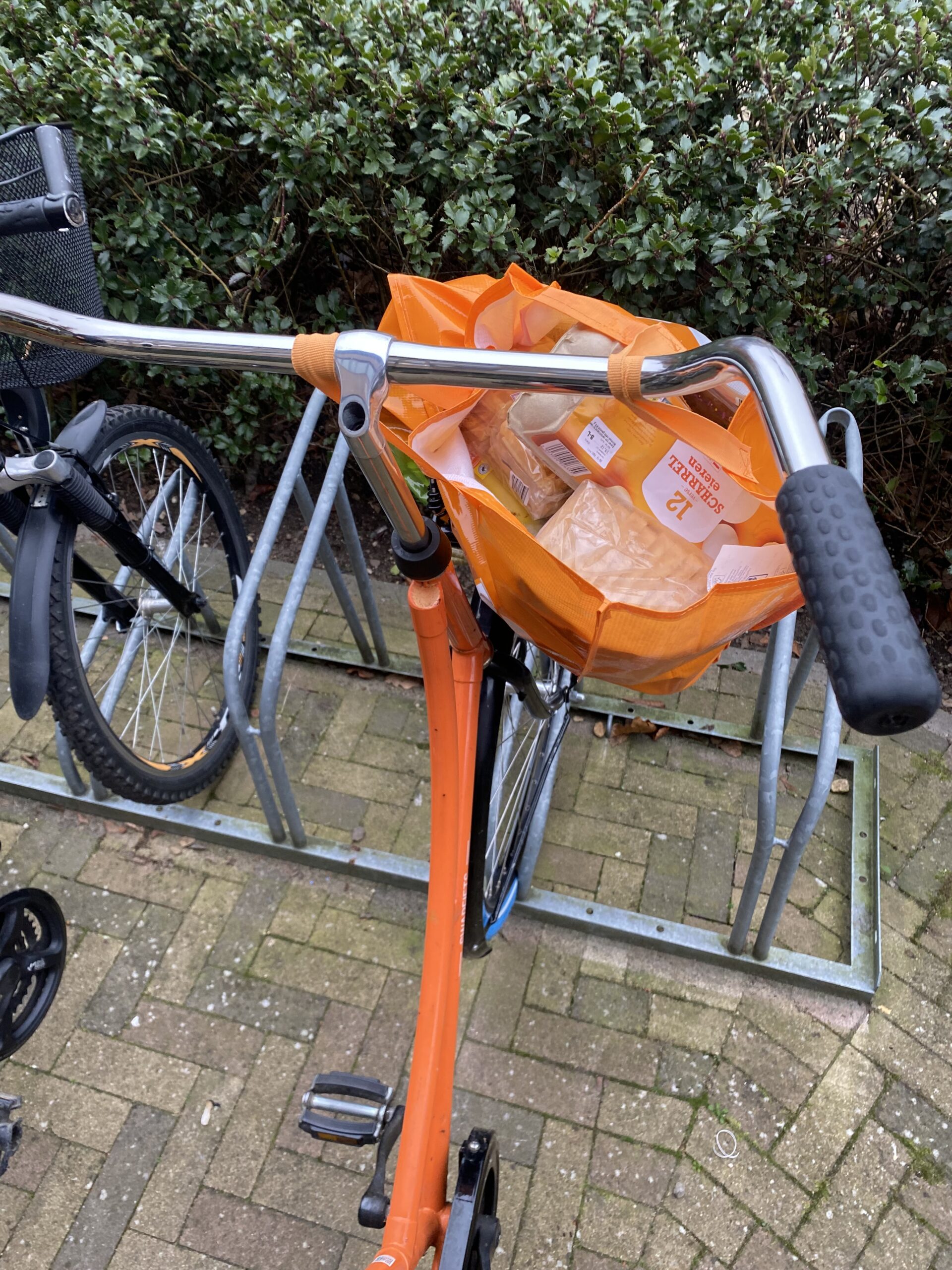
Transportation in the Netherlands
The Netherlands is a very accessible country. There are two main options when getting around: take a bike or ride the train.
Always biking
Transportation is simple in the Netherlands: Get a bike! It is the best country in the world for biking. Even when driving through the countryside there are biking lanes. This should be your priority when you arrive for your studies.
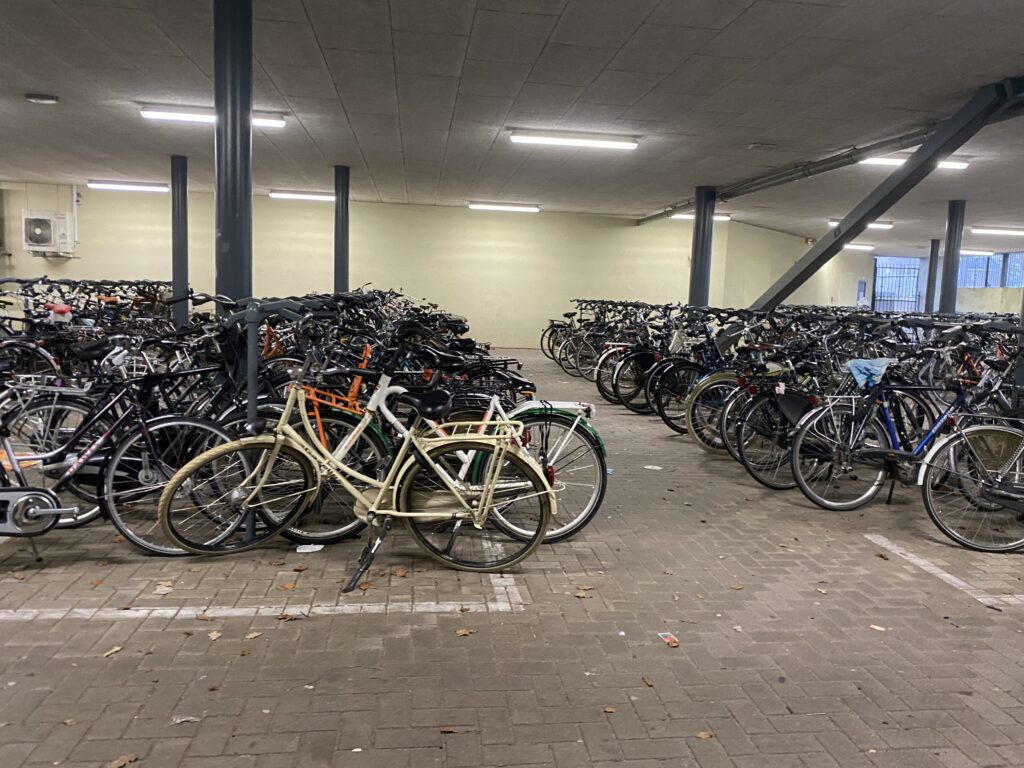
How to get a bike
If you are in the Netherlands for only a day or 2, get a daily rental bike from any large train station with your OV-Chipkaart. Simply pick a bike and scan your card. The card will track the number of days you have it and charge your account accordingly.
For a long-term rental, I recommend using Swapfiets. This is the largest bike rental company in the Netherlands with stores in most larger towns. You can download the app and schedule meetings instantly. They also offer a mobile service if your bike breaks down. The cheapest bikes range from 17-20 EUR per month. They also waive the contract fee if you rent a bike as a student. This is a good option for a 6-month (or less) stay.
If you are staying in the Netherlands for longer than 6 months, you should probably purchase a bike from a second-hand bike store, online, or steal one (joke). The best place to find a second-hand bike is on Marktplaats, a Dutch-specific second-hand website. You can always try Craigslist and Facebook Marketplace for other resources.
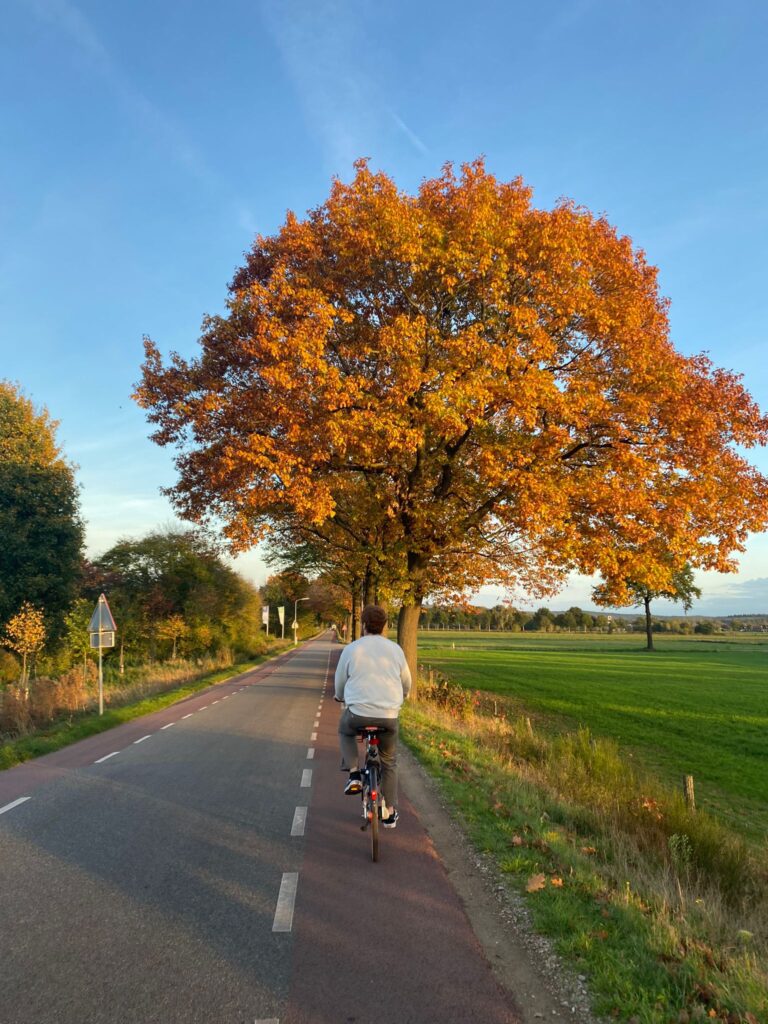
General biking rules to know
In the Netherlands, there are always three different traffic lights, lanes, and rules for either bikers, drivers, or walkers. When on a bike, always remember to stay on the red-painted sidewalk that is usually located between the pedestrian walkway and the street. It is pivotal to remember lights for your bike (both back and front) and you will be fined without them! Also, at every pedestrian crossing, identified by white stripes and a blue sign, you must yield to the walker. You will also notice that helmets are not necessary for the Netherlands, and you will look goofy wearing one.
Taking trains in the Netherlands
Price of train tickets in the Netherlands
The first thing I should mention about the Trains in the Netherlands is that they are very expensive if you are not a Dutch citizen. For example, a one-way train ticket from Nijmegen (where I studied) to Amsterdam is 17 EUR for an hour-and-a-half journey. However, the prices of tickets get significantly cheaper when you increase the number of travelers. I recommend finding some pals to explore the Netherlands with! You can find more information about group ticket discounts.
Best journey planning apps
For planning your journey, download the NS app to guide you through the Netherlands. It is the best app for planning travel from city to city. Once you buy a train ticket, you can upload it in the app for ease of use when approaching the gate. If you are trying to navigate travel within a city, download the 9292 app. This will give you step-by-step information about bus routes, train times, and even scooter/bike rental.
OV-chipkaarts
OV-chipkaarts are a Dutch-specific travel payment method. Instead of going through the time to buy an individual train pass, you can simply scan the card when you enter a train and when you leave. It then automatically charges your account. You can either buy a personalized card (monthly subscription), an anonymous card, or a disposable card for single usage.
I recommend buying the Anonymous OV-chipkaart for anyone who is studying for the short term. It was only 5 EUR when I bought it. This way you can pre-load your travel account and save time (and money). The OV-chipkaart also allows you to rent a bike at any international train station or take local public transportation. Keep in mind that the gates do not allow you to enter if your card has a balance below 20 EUR. You can read more about the advantages of owning an Anonymous OV-chipkaart.
Overall: rent a bike from Swapfiets, order an OV-chipkaart, and travel to the Netherlands with some friends!
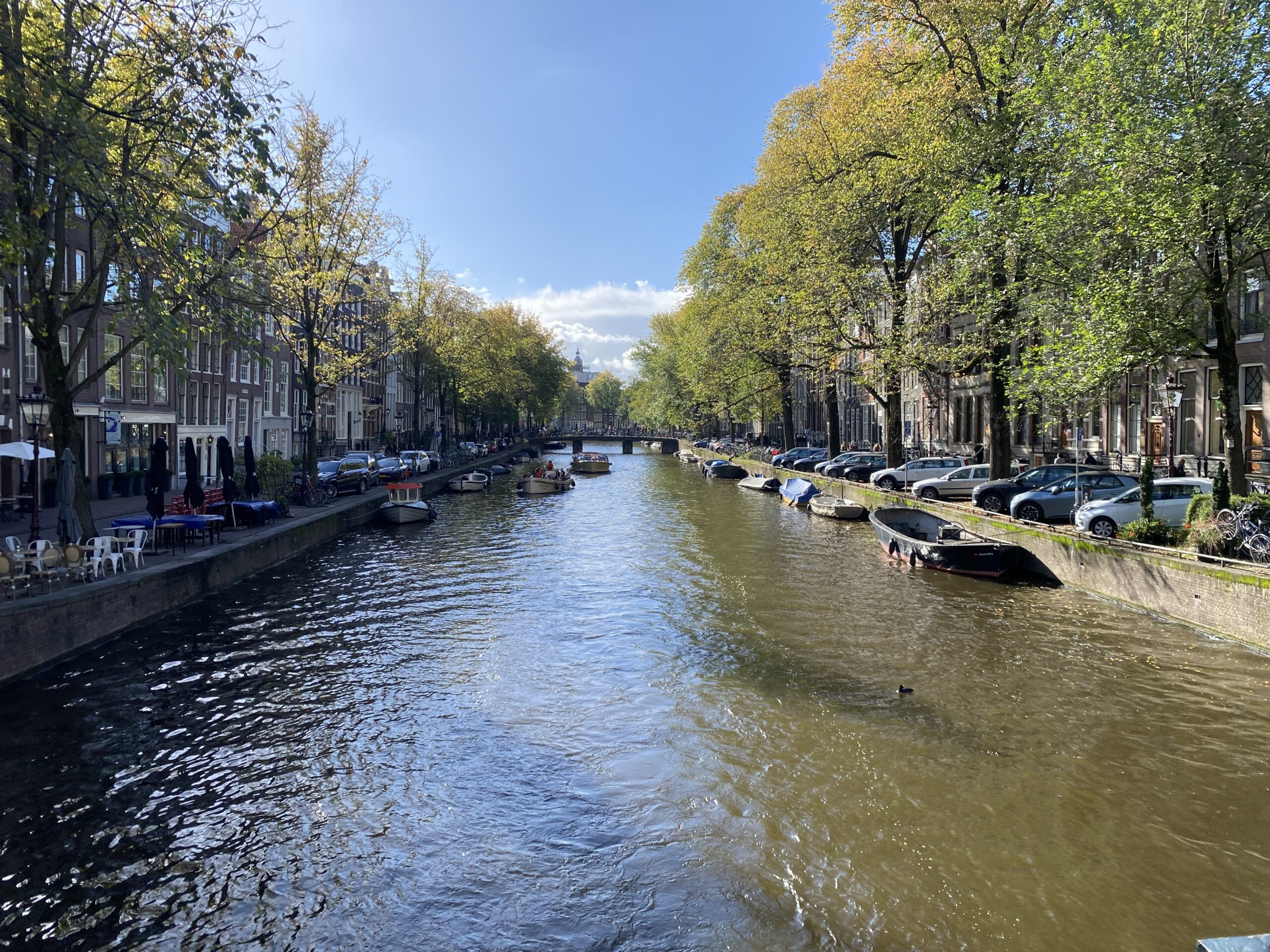
How to pay for things in the Netherlands
Using your card may be a struggle when coming to the Netherlands with a foreign bank account. In general, the Dutch have their own banking system and exchange system. They use a money exchange app, called iDeal, which you need a Dutch bank account for (like ABN Amro). Also, for all of the things you will need an IBAN- or an International Bank Account Number. Essentially, it is hard to determine where your credit card will work. The following sections will break this down bit by bit.
Opening a Dutch bank account
Many students consider opening an account when arriving. The best bank to open an account through is ABN Amro. They offer a free student package if you follow the following requirements: you have a BSN number, you have a registered address, and you are a student. Note that if you are an American student, you are required to make an appointment at a physical location. Also, these requirements are very easy once you are registered through your university, as they will likely do all of this for you. Once you have a Dutch bank account, download the iDeal app and load your bank details for easy payment everywhere you go.
Cash or no cash?
If you do not have a Dutch bank account, I recommend having enough cash on you at all times. Many stores will surprise you and deny your bank. Visa and Master Card/Maestro have the most issues because local businesses have to pay more to be able to accept these cards. ALWAYS be prepared with enough cash. However, if this happens at a bar, you may be out of luck because many bars do not accept cash either.
Where to withdraw money in the Netherlands
If you decide to open a Dutch bank account, you do not have to worry about the withdrawal fees of ATMs. However, with a foreign card, this is a different story. The number 1 rule is to STAY AWAY from EURONET ATMs that scatter Dutch cities. These are a rip-off by charging outrageous fees. Locate your bank’s ATM finder. I attached some links below based on your bank:
Mastercard ATM locator: ATM Near Me | Find the Nearest Mastercard, Maestro or Cirrus ATM
American Express ATM Locator: American Express ATM Locator
Discover ATM locator: ATM Locator | Discover Bank
Visa ATM locator: Global ATM Locator (visa.com)
What is it necessary?
I got away with living in the Netherlands for 6 months without opening an account. I would check your bank’s policy on exchange rates if you are traveling from outsize of the Eurozone, as this may affect your account significantly. The biggest obstacle with this decision was not being able to buy groceries from large stores like Albert Hein. It is honestly random when credit is accepted at grocery stores, so it is always smart to have sufficient cash in your wallet.
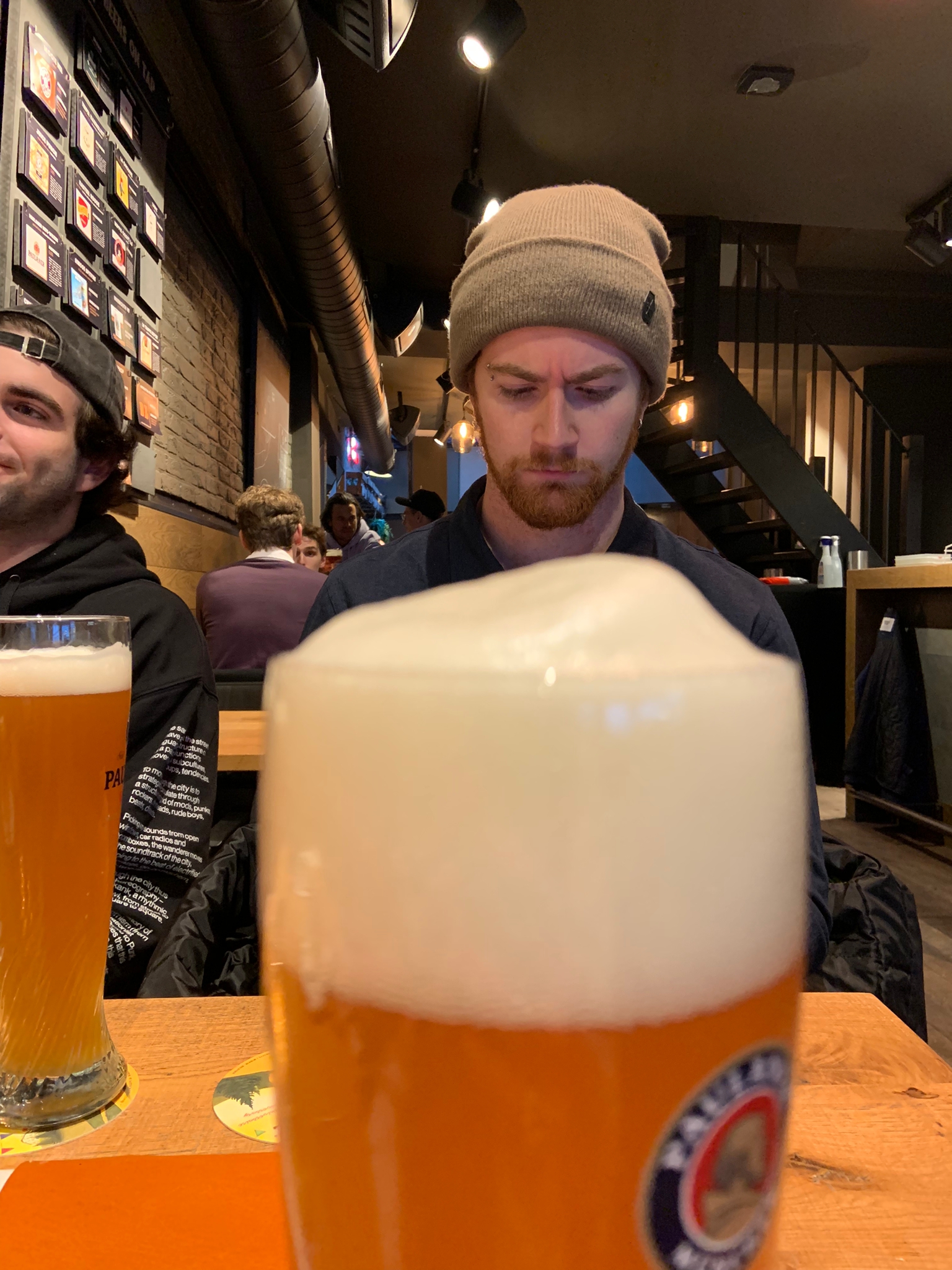
Necessary language skills
The Netherlands has one of the highest percentages of non-native English speakers in the world. This is obvious once you travel there. Even the older population can communicate in good English. With that being said, it is easy to fall into the norm of speaking English everywhere you go. I encourage you to learn simple phrases to appeal to the locals. Just because they can speak English doesn’t mean they want to! Keep this in mind and be polite by learning simple phrases.
Weather in the Netherlands
You have probably already heard that the Netherlands is not known for its beautiful weather. I want to start this off by saying this is not particularly true. In the summer months, it is generally drier and especially warm. The humidity in the air makes it feel even hotter. The sun almost always shines in the summer and fall. Note that many apartments you will rent as a student will not have air conditioning, but as a broke student, this better not be your deal breaker!
However, the winter months in the Netherlands are quite dark with little sunlight and short days. You will notice that it rains quite often, but never downpours. The rain in the winter is a constant drizzle. This means you can bike to the grocery store or a friend’s house without getting drenched by mother nature. Never let the rain convince you to stay inside for the day!!!
No matter the time of year, the weather in the Netherlands will feel a bit extreme due to the fact you are biking everywhere. Get yourself a nice rain jacket and you will be golden.
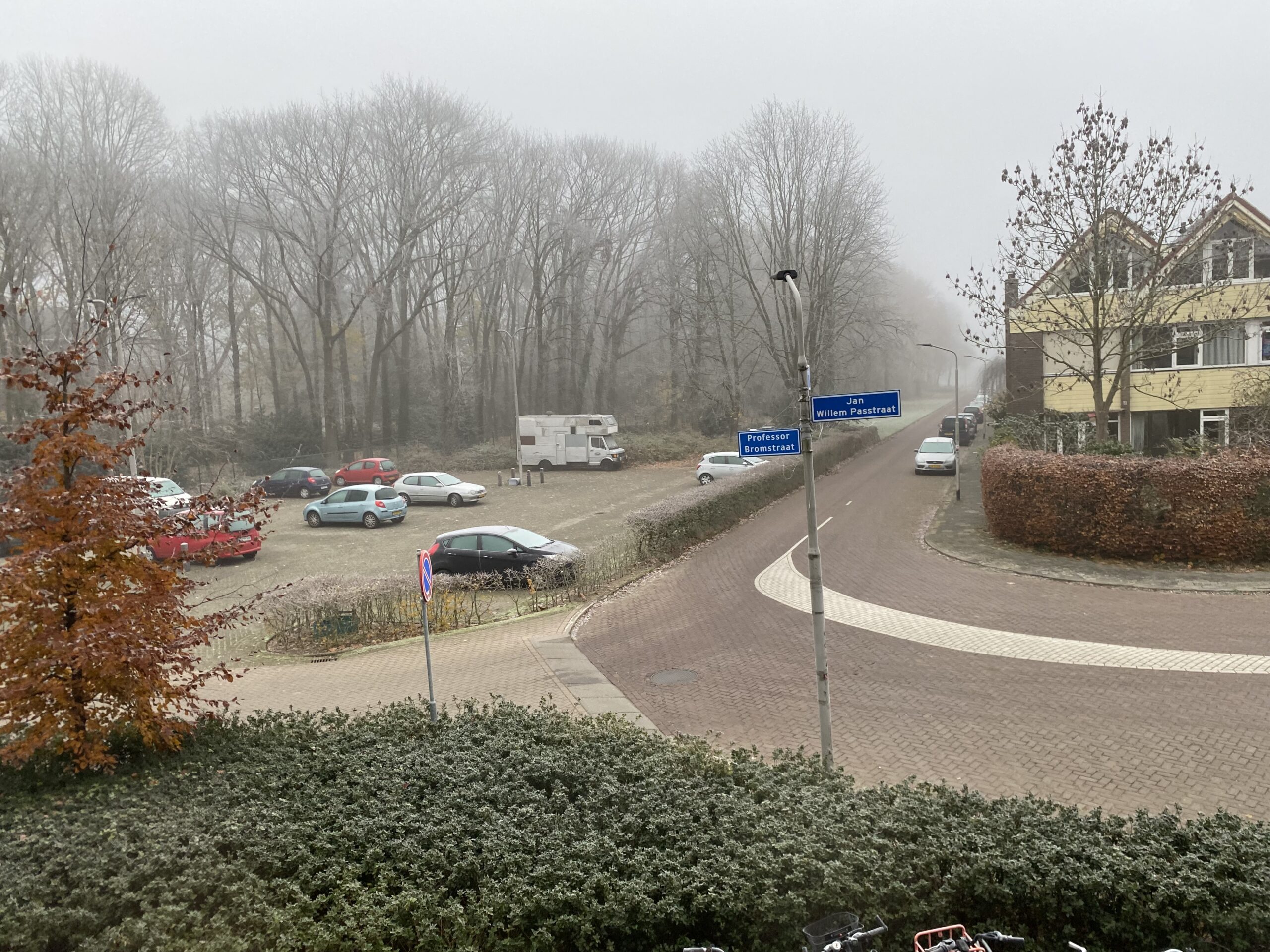
Where to buy things as a student
As a broke student in the Netherlands, it is important to scope out cheap places to gather goods before arriving (especially a bike). The Netherlands is full of overpriced stores, but I created a mini guide of places you should first walk through before making any big purchases.
Markplaats
Markplaats is an online resale platform that is Dutch-specific. Here, you can find anything you would normally do on Facebook Marketplace. It is loaded with discounted items. You will also notice that tons of items are listed as free. If you plan on selling anything on the platform, make sure to translate it into Dutch!
Action
Action is a large discount retailer with locations all over the Netherlands. If you need something immediately, go here. I often purchased cleaning supplies, cooking stuff, and school supplies.
Thrift Stores
Thrift stores pack the streets of the Netherlands. Many are clothing specific, but you can often find a good authentic all-inclusive store. Note that many of these stores are only on specific days. If you live in a big city in the Netherlands, check out the flea markets that are offered on the weekends where locals go and sell their stuff! The Dutch value second-hand items so you will find some quality items at a cheap cost.
Events in the Netherlands
The Dutch are known to the party, and they throw some amazing events! Every weekend there is a festival somewhere. It is important to keep up to date and follow certain Facebook groups that suit your needs.
Due to the high demand for events, it is important to note that many may sell out. When this does happen, I recommend finding tickets on the Dutch-specific platform TicketSwap. This is a verified ticket reseller that does not allow for price gauging. Essentially, it keeps popular events from getting too expensive due to greed.
TicketSwap is bustling when there is a popular event. It is best to download app on your mobile phone. You can set yourself notifications when a ticket appears but act quickly because it will be gone within seconds. When there is an event that you are considering attending but still has not sold out, wait a few days and buy the ticket second-hand off TicketSwap. It will be cheaper if the event never sells out.

Random advice:
- Join ESN (Erasmus Student Network)
This is a student-organized club that hosts events and parties for international students. This is a very popular club in the Netherlands due to its heavy international student population. It is also open to all types of students whether a university student or an applied science student… everyone is included! The membership only costs 15 EUR. Read more about ESN and why you should join.
2. Join random international Facebook groups
The best way to feel at home away from home is to meet people from your home. Due to the large population of internationals in the Netherlands, it is easy to find a country-specific group on Facebook.
3. Get to know some Dutch folks
With a large international population, it is easy to stay in your little bubble. However, you did not travel to the Netherlands to only be around people you are comfortable with! You will soon find out that Dutch people are lovely and extremely friendly.
4. Try some cheap food at FEBO
FEBO is a vending machine-like corner fast food restaurant. You simply press a button, make a payment, and little door dispenses your 2 EUR croquet. It is perfect for a late night snack, but do not expect much.
5. Bike through some gorgeous Dutch parks
There are some beautiful parks and preserves in the Netherlands. All of them have perfect bike lanes throughout. Get out in the parks and explore! This is especially nice in the fall when the leaves are changing colors.

6. Visit a traditional Dutch bar
I recommend visiting a cozy Dutch bar. You can usually tell it’s a Dutch bar if it is sponsored by Amstel or Heineken and has a red backdrop to it. They are truly authentic to the area, so I recommend checking them out. Keep in mind that many Dutch bars only accept Dutch bank cards and sometimes do not even accept cash. Therefore it’s important to ask before ordering a beer!
7. Take frequent weekend trips
The Netherlands is centrally located and internationally connected. Take advantage of this by visiting other countries and cultures during your stay. You are also probably less than 2 hours away from any Dutch city, making day trips a must. You can follow my guide in a separate article on the best cities to visit for a day trip (coming soon).
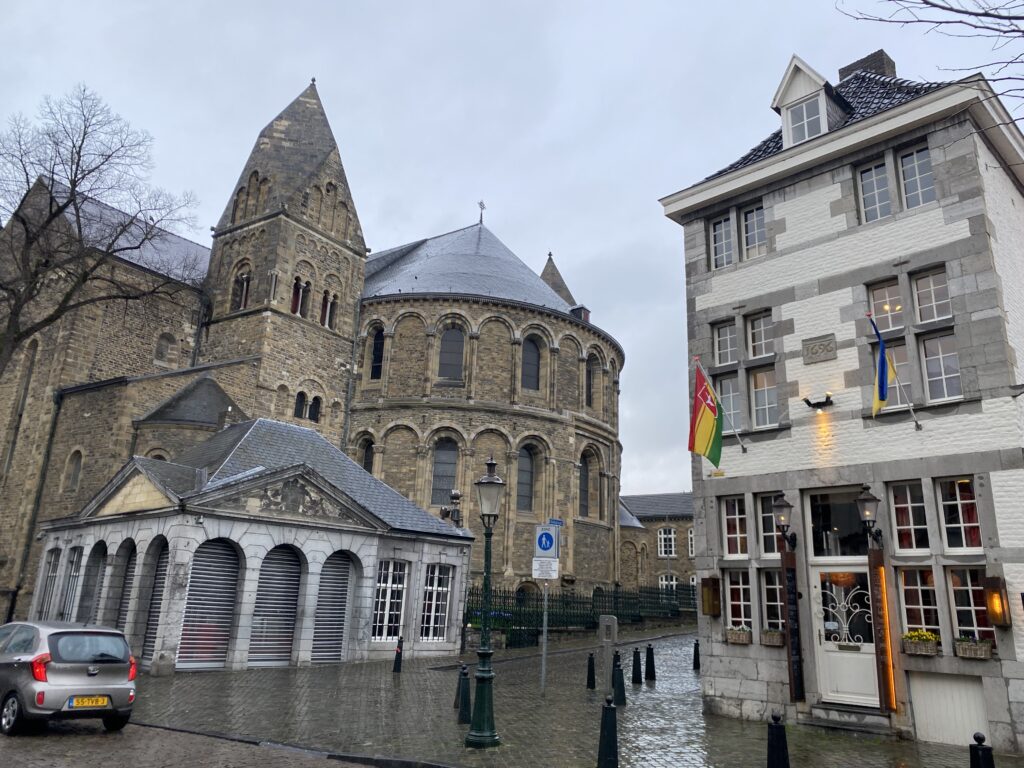
Conclusion
The Netherlands is a country full of things to do. After reading this guide, you now know how to grocery shop, pay for things, rent a bike, and get on a train in the Netherlands! The county is extremely easy to navigate when you download 9292 and the NS scheduler. It is also easy to attend various events through the TicketSwap app. Overall, I wish you the best of luck on your journey to the Netherlands!
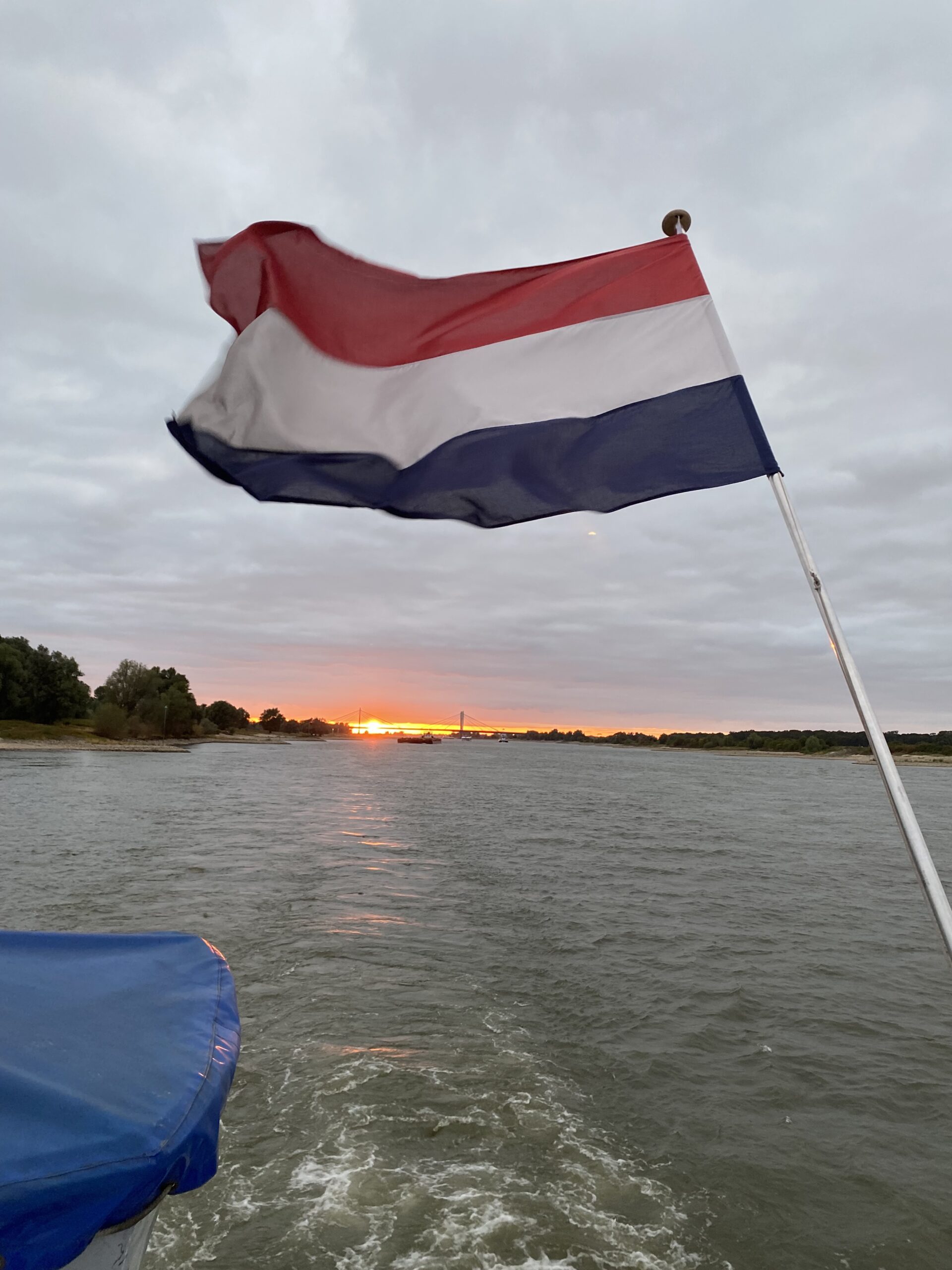
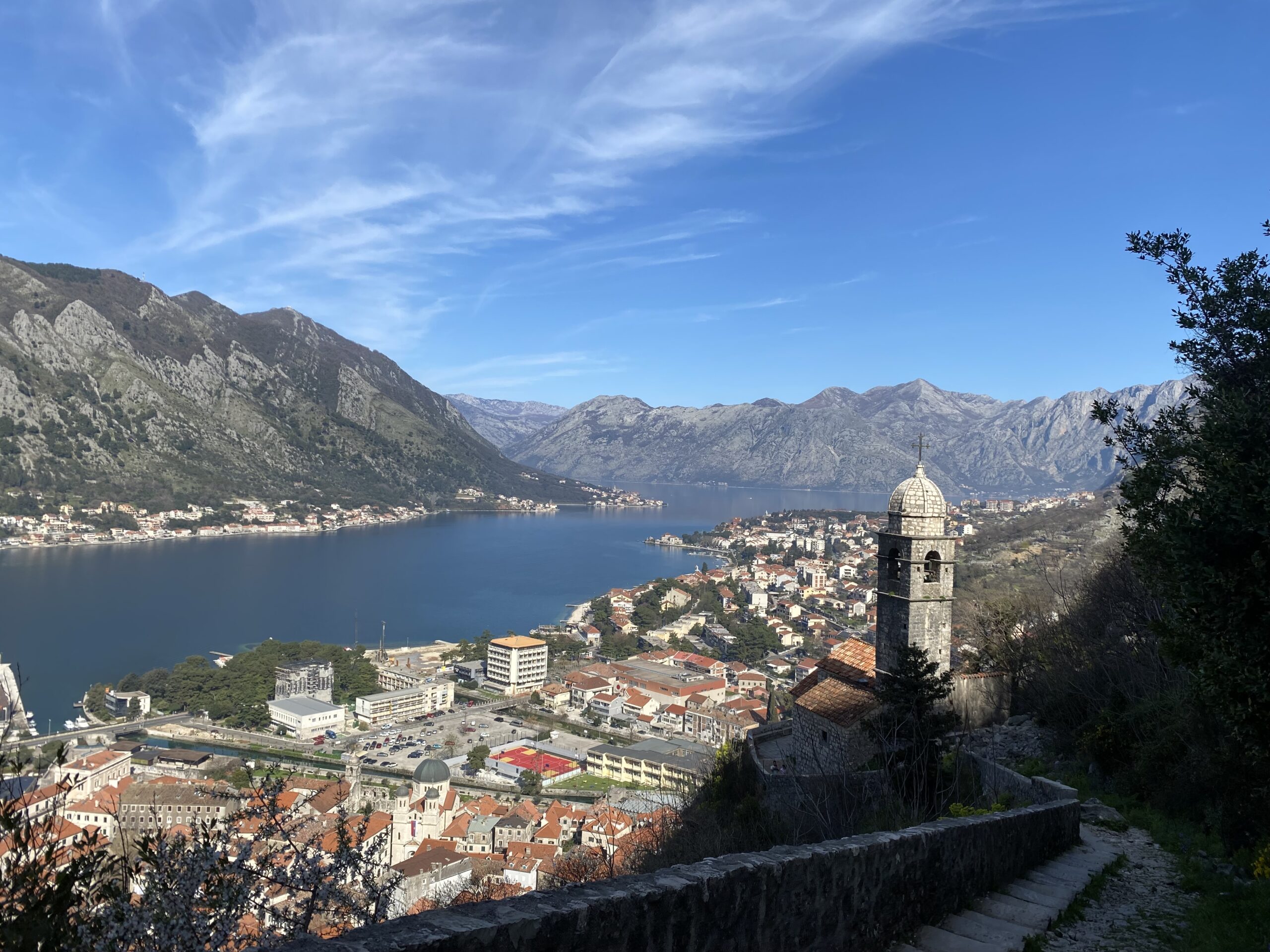

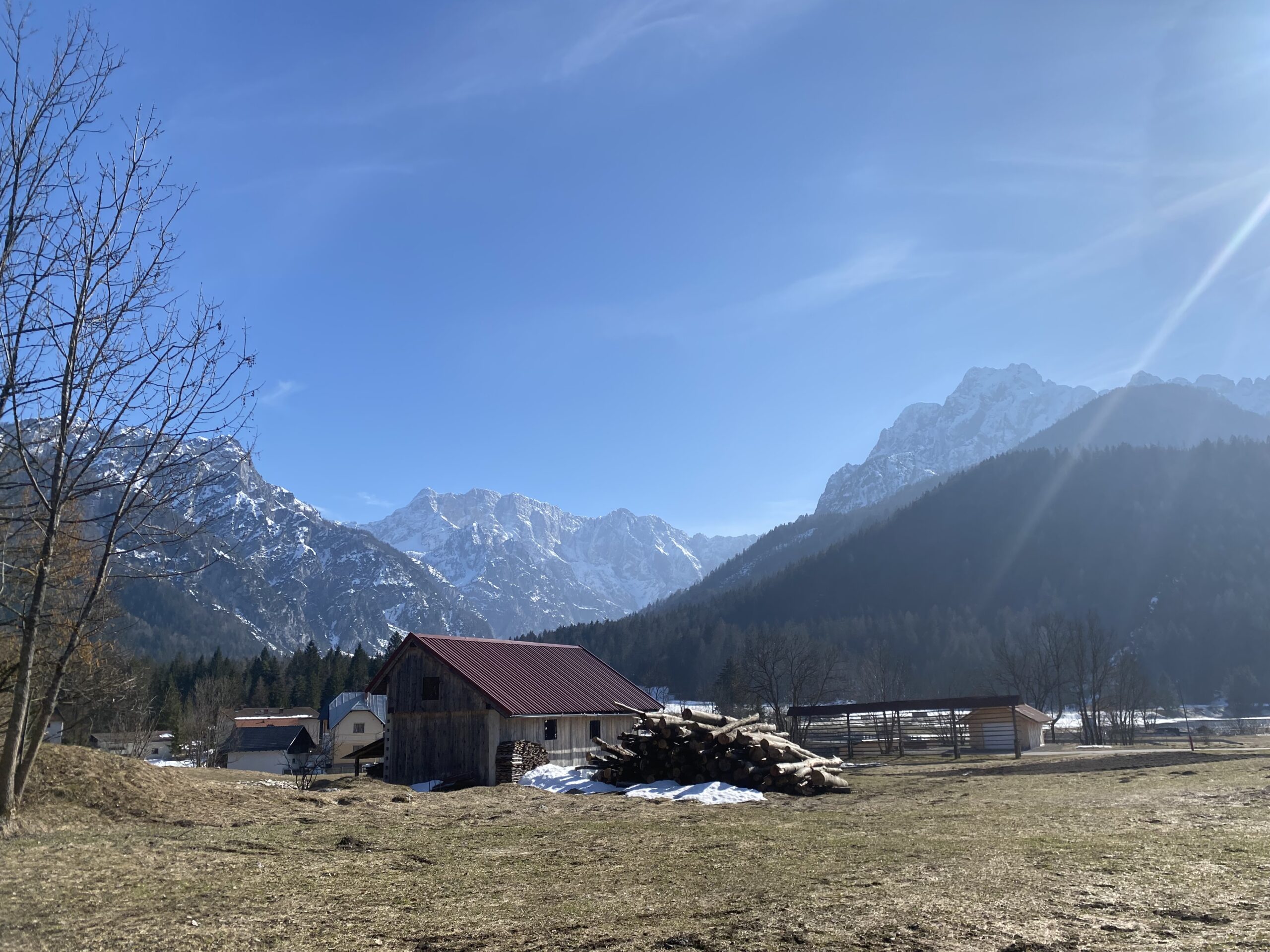
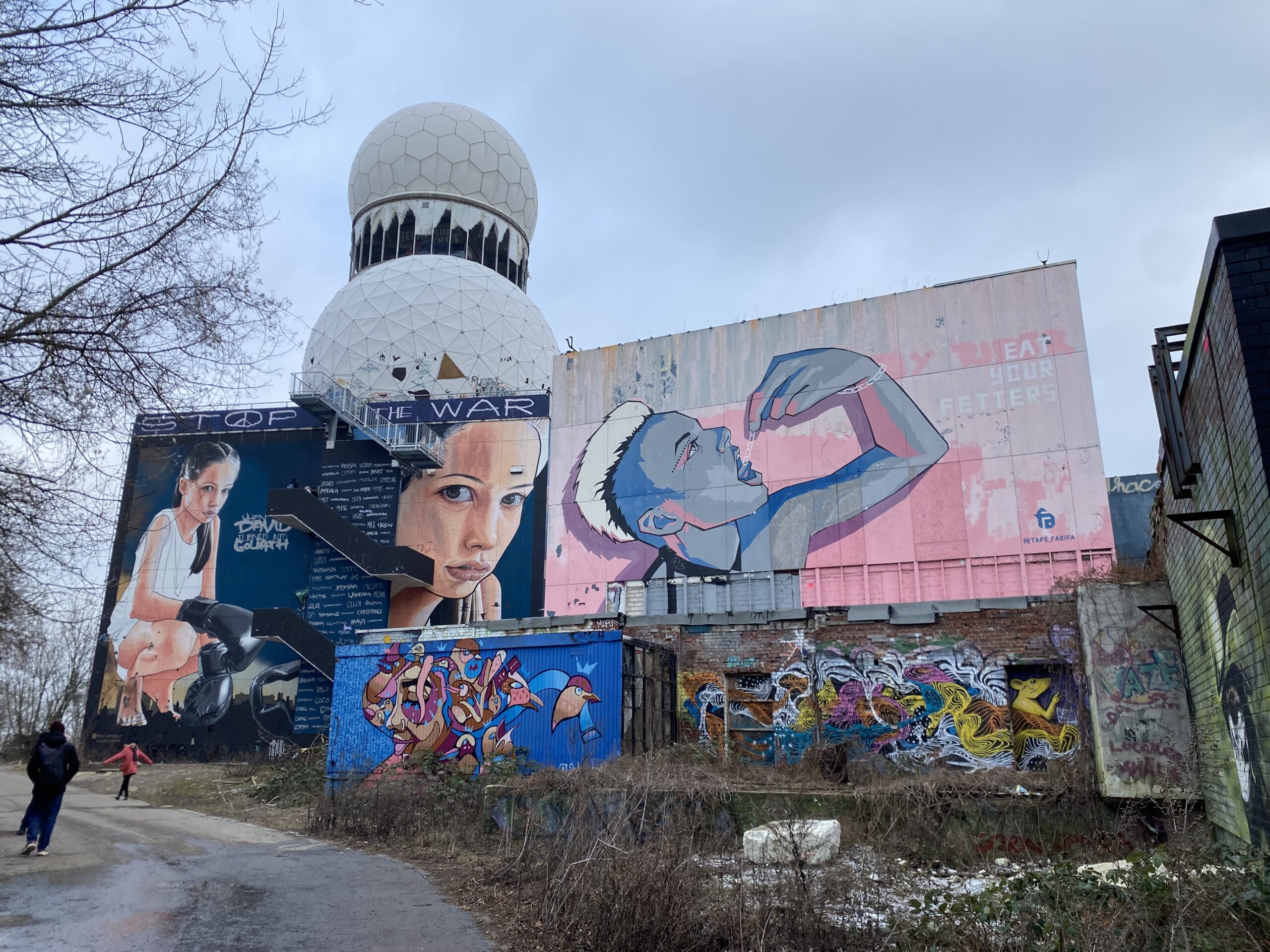
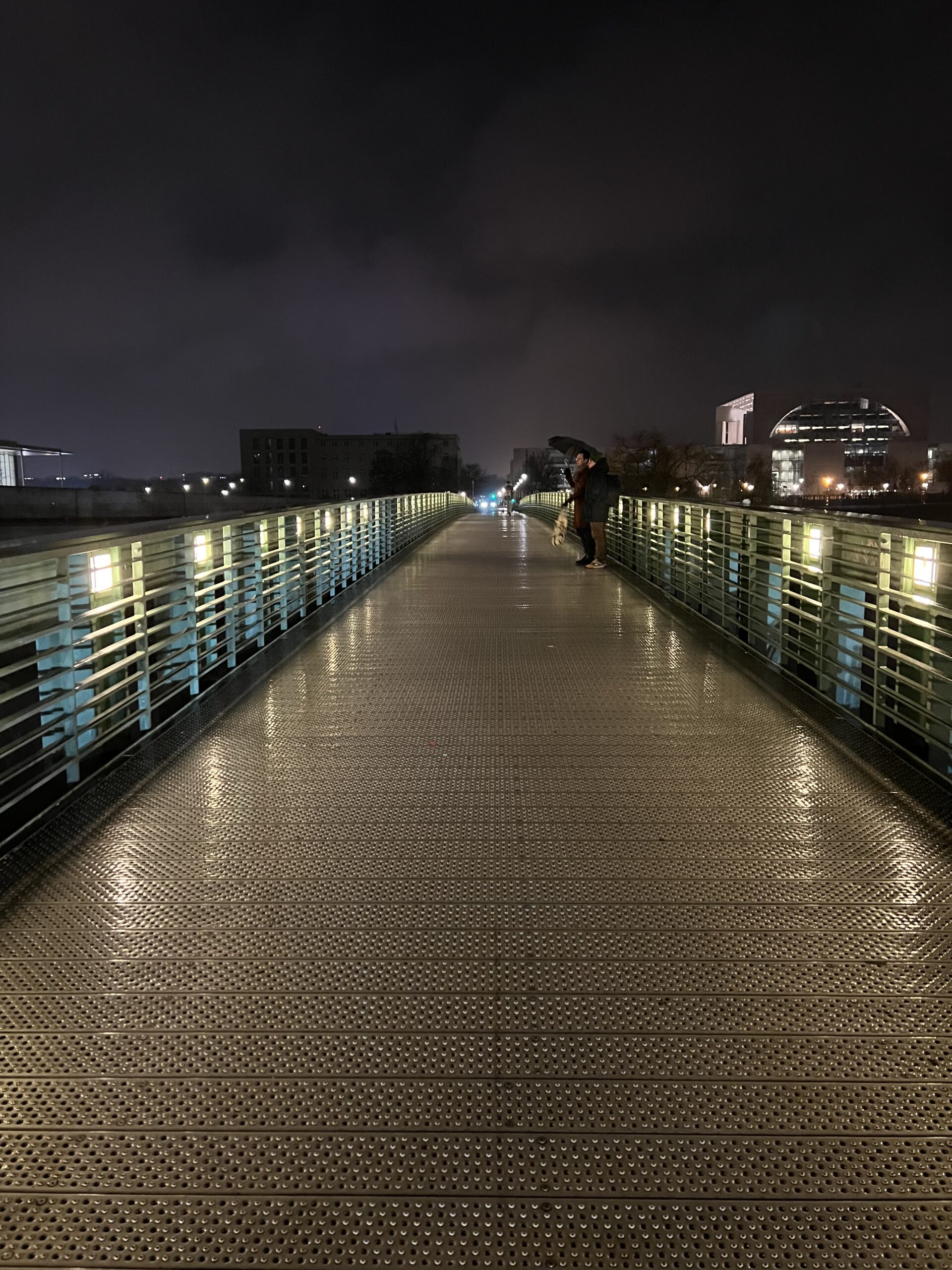
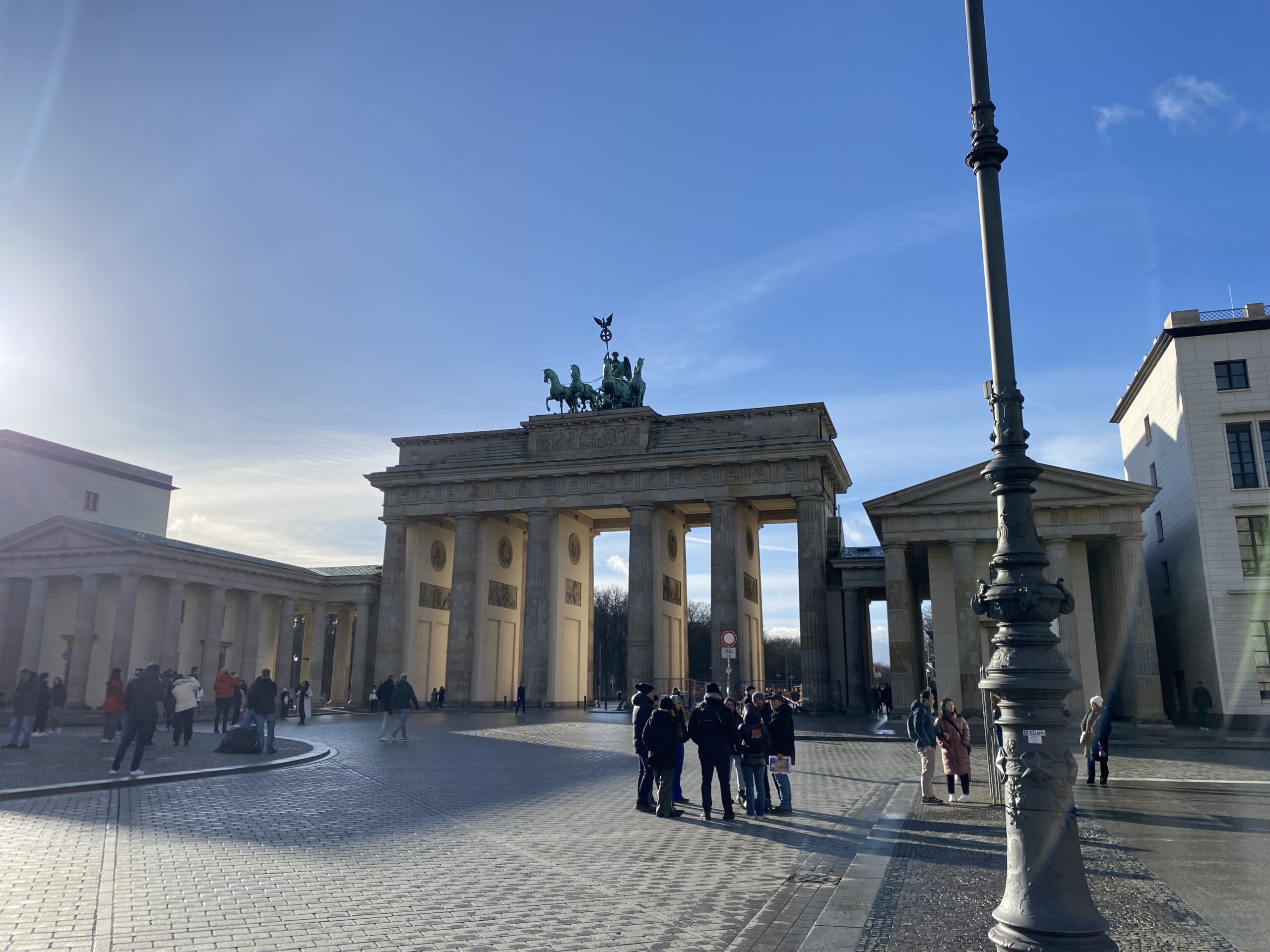
One reply on “How to be a student in the Netherlands”
[…] Renting a bike in Nijmegen is essential. Once you have money loaded on your OV-Chipkaart, you can grab a bike from the Nijmegen Central station. The bike station is a bit hidden from the station. Once you walk out of the main entrance of the station, cross the bike path and turn left. There will be a big staircase that takes you to an underground rental area. You can read more about the importance of an OV-Chipkaat with more practical information from my recent blog post. […]